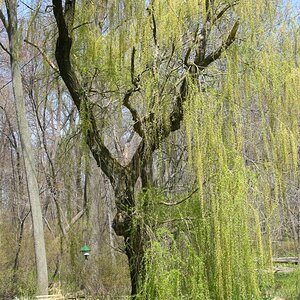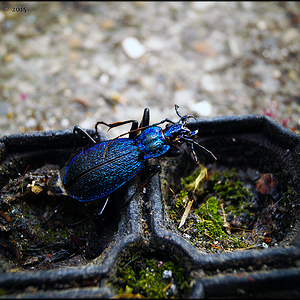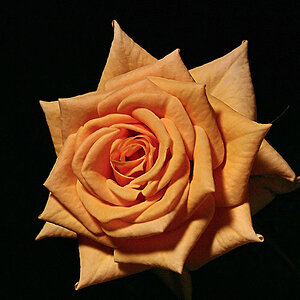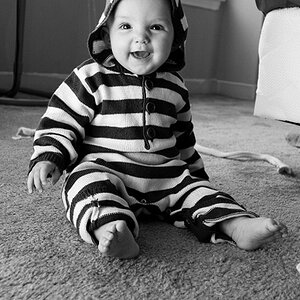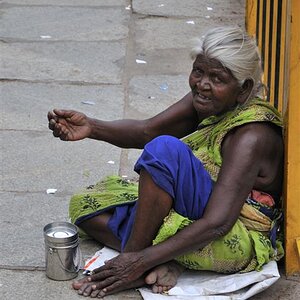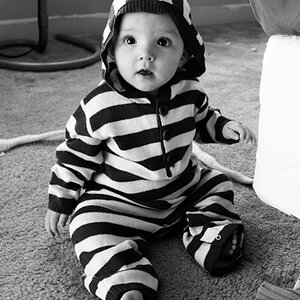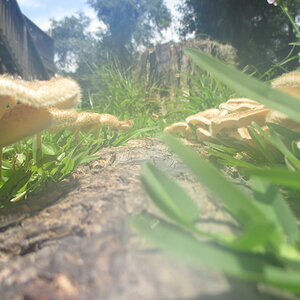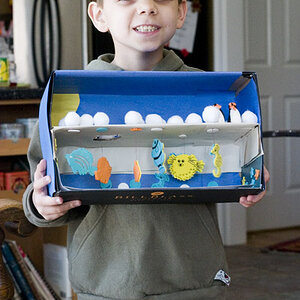Navigation
Install the app
How to install the app on iOS
Follow along with the video below to see how to install our site as a web app on your home screen.

Note: This feature currently requires accessing the site using the built-in Safari browser.
More options
You are using an out of date browser. It may not display this or other websites correctly.
You should upgrade or use an alternative browser.
You should upgrade or use an alternative browser.
Must-Have Filters?
- Thread starter Luna
- Start date
jlykins
TPF Noob!
- Joined
- Dec 1, 2007
- Messages
- 1,235
- Reaction score
- 3
- Location
- Cincinnati
- Website
- www.jlykinsphotos.com
- Can others edit my Photos
- Photos OK to edit
I really like my GND filter. It helps me get the longer exposures on bright days.
Alpha
Troll Extraordinaire
- Joined
- Mar 15, 2005
- Messages
- 5,451
- Reaction score
- 41
- Location
- San Francisco
- Can others edit my Photos
- Photos NOT OK to edit
ND filter set
CPL
UV, only for protection, not to shoot through
for film I keep an assortment of colored filters handy:
25, 29, and 89 reds
orange, green, yellow, and blue
Had my eye on a Singh Ray Vari-ND for a while. mmmmmmm.
CPL
UV, only for protection, not to shoot through
for film I keep an assortment of colored filters handy:
25, 29, and 89 reds
orange, green, yellow, and blue
Had my eye on a Singh Ray Vari-ND for a while. mmmmmmm.
stabo
TPF Noob!
- Joined
- May 2, 2008
- Messages
- 11
- Reaction score
- 0
- Location
- Ireland
- Can others edit my Photos
- Photos OK to edit
Why would you not shoot through with a UV? only have my camera a few weeks,i leave the UV filter on the whole time.ND filter set
CPL
UV, only for protection, not to shoot through
for film I keep an assortment of colored filters handy:
25, 29, and 89 reds
orange, green, yellow, and blue
Had my eye on a Singh Ray Vari-ND for a while. mmmmmmm.
Garbz
No longer a newbie, moving up!
- Joined
- Oct 26, 2003
- Messages
- 9,713
- Reaction score
- 203
- Location
- Brisbane, Australia
- Website
- www.auer.garbz.com
- Can others edit my Photos
- Photos NOT OK to edit
Unless you have a very good UV filter (Hoya SHMC, B+W or some equivalent good one) you typically suffer a quality hit.
Even with the top of the line filters if you shoot into a flaring light source like the sun or a street lamp, it'll cause ghosting.
I would agree with Alpha's list and add a Hoya RM72 Infrared filter to the list, but then i'm a sucker for the effect and shoot infrared film on occasion too.
Even with the top of the line filters if you shoot into a flaring light source like the sun or a street lamp, it'll cause ghosting.
I would agree with Alpha's list and add a Hoya RM72 Infrared filter to the list, but then i'm a sucker for the effect and shoot infrared film on occasion too.
Ageed.ND filter set
CPL
Uh-oh: UV filter only for situations where there is excess UV light to be filtered. If there isn't, don't use it.UV, only for protection, not to shoot through
Only for B/W film.for film I keep an assortment of colored filters handy:
25, 29, and 89 reds
orange, green, yellow, and blue
Color negatives or slides will end up as scans in CS3 anyway...
Could be fun if you're into the long exposure/tripod game. Please demo it for us when you get it.Had my eye on a Singh Ray Vari-ND for a while. mmmmmmm.

All filters, even the most expensive ones, share one weak spot: they have 2 sides, front and back. Both are refracting zones of course, whichever way you cut it. Thus increasing flare, focal softness, and chromatic aberration.Originally Posted by Garbz
Unless you have a very good UV filter (Hoya SHMC, B+W or some equivalent good one) you typically suffer a quality hit.
Even with the top of the line filters if you shoot into a flaring light source like the sun or a street lamp, it'll cause ghosting.
Use filters when you need them. But maybe even more important: don't use them when you don't need them!
TamiyaGuy
No longer a newbie, moving up!
- Joined
- Jun 25, 2007
- Messages
- 1,078
- Reaction score
- 0
- Location
- Chelmsford, UK
- Can others edit my Photos
- Photos OK to edit
I would say an ND filter is a good investment, especially if you like river photos in daylight. A UV filter is pretty good as well for cutting down the haze in landscape photos, although I heard somewhere that a polariser does that as well. Those are really the "main" filters, there are tons to choose from.
However, like Alfred D said, filters will degrade image quality, there's no two ways about it. It's just finding a comprimise between total image quality and the effects of various filters. Good luck!
However, like Alfred D said, filters will degrade image quality, there's no two ways about it. It's just finding a comprimise between total image quality and the effects of various filters. Good luck!
AndrewG
TPF Noob!
- Joined
- May 15, 2008
- Messages
- 155
- Reaction score
- 0
- Location
- Exeter, UK
- Can others edit my Photos
- Photos OK to edit
Skylight for protection, polarizer and orange-for b&w. All Hoya.
Garbz
No longer a newbie, moving up!
- Joined
- Oct 26, 2003
- Messages
- 9,713
- Reaction score
- 203
- Location
- Brisbane, Australia
- Website
- www.auer.garbz.com
- Can others edit my Photos
- Photos NOT OK to edit
Use filters when you need them. But maybe even more important: don't use them when you don't need them!
I think I've said it before but a flat piece of glass doesn't cause CA, especially optical glass. That is a function of glass that bends light only. Anyway I agree on all the other points, especially the flare. Regardless of how good optical coating is a filter is a flat face and will ghost a light source. Proved that well and truly with Hoya's top filters, and cheap filters here: http://www.thephotoforum.com/forum/showthread.php?t=100830
I will disagree on principle though. A $100 filter is cheaper to replace than the aspherical front element of my 28-70 f/2.8. I've been in a situation where a filter has taken the full force of a cliff face before (cheaper lens though), and shattered, so unless I am using a tripod and shooting into something that will cause flare problems, my UV / Protection filters stay on at all times.
Battou
TPF junkie!
- Joined
- May 10, 2007
- Messages
- 8,047
- Reaction score
- 66
- Location
- Slapamonkey, New York
- Website
- www.photo-lucidity.com
- Can others edit my Photos
- Photos NOT OK to edit
I have a crossthatch filter...I'm just looking for an excuse to use it :lmao: as well as a metric butt ton of UV Filters.What are some must-have filters in your opinion?
I just got a circular polarizing filter and I love it! I can't believe the difference that it makes, particularly to the sky. I have been obsessed with taking before (without the filter) and after (with) photos of clouds.I also got a six-pointed start filter, just for fun. I know it's not necesary but it's fun to play around with. I plan to get a UV filter soon for general lens protection. Are there any others that I should consider?
It's alredy been covered but, If you are planning on doing any B&W, you should invest in a good set of BW filters.
pm63
TPF Noob!
- Joined
- Apr 23, 2007
- Messages
- 587
- Reaction score
- 0
- Location
- London
- Website
- flickr.com
- Can others edit my Photos
- Photos OK to edit
If anyone could answer any of these, it would be great:
So is it a good idea to leave on a UV filter all the time for protection? As Garbz said, it would be tragic to break/scratch the front element of your lens.
Also, how can you tell when there will be ghosting due to your UV filter, and when are you 'supposed' to use your UV, i.e. what would be an example of a situation where there is lots of unwanted UV light?
Is it true that you should leave on a polariser for most outdoor shots, just to increase the colour saturation?
And I'd love a good ND grad, but they're so expensive
So is it a good idea to leave on a UV filter all the time for protection? As Garbz said, it would be tragic to break/scratch the front element of your lens.
Also, how can you tell when there will be ghosting due to your UV filter, and when are you 'supposed' to use your UV, i.e. what would be an example of a situation where there is lots of unwanted UV light?
Is it true that you should leave on a polariser for most outdoor shots, just to increase the colour saturation?
And I'd love a good ND grad, but they're so expensive
I don't agree with Garbz here. Leaving the UV filter on when there is no excess UV light to be filtered puts an extra barrier – with 2 refracting sides – in front of the lens. That can only do one thing: degrade the image.So is it a good idea to leave on a UV filter all the time for protection? As Garbz said, it would be tragic to break/scratch the front element of your lens.
For lens protection I use a lens cap, which was designed to do precisely that, and a lens hood (never shoot without a hood!).
You don't use a screwdriver to hammer in nails either, do you?
Use a UV filter (only) when there is an excess of UV light. There is an excess UV light at altitude (over 3,000 feet), in the desert and savannah, at the beach, at sea, and in snowscapes. If you're not in any of these circumstances there is no excess UV light to be filtered. So use a UV filter only in those situations. Not in others.Also, how can you tell when there will be ghosting due to your UV filter, and when are you 'supposed' to use your UV, i.e. what would be an example of a situation where there is lots of unwanted UV light?
No.Is it true that you should leave on a polariser for most outdoor shots, just to increase the colour saturation?
Firstly, you must want that colour saturation (in the sky more than anywhere else) in that particular image. Secondly, the lens axis angle in relation to the sun determines whether or not the light can be polarized, and by how much. Thirdly, polarizing slows down your available shutter speeds by up to 2,5 stops. You will probably need a tripod.
Important: polarizers and wide angle lenses don't match! You'll get blotchy skies!
An UNgraduated ND filter is more useful. It enables you to slow down your shutter speeds, or open up your aperture (for more selective DoF), by several stops.And I'd love a good ND grad, but they're so expensive
Instead of using an ND grad you'll get better results with HDRI.
pm63
TPF Noob!
- Joined
- Apr 23, 2007
- Messages
- 587
- Reaction score
- 0
- Location
- London
- Website
- flickr.com
- Can others edit my Photos
- Photos OK to edit
Thanks for the reply Alfred.
The thing with that is that when you're walking around the city, stopping to take photos every few seconds, it becomes very impractical to keep taking the lens cap on/off. Also, why always shoot with a hood? I thought they were only for when there is a light source close you the edge of your frame that could potentially spoil the photo, or when other excess light can enter? And even if you do leave it on, there is still a chance for your lens to get scratched.
I heard that a polariser works best at 90 degrees to the sun, is this true?
It depends on what you want. I find myself in many landscape situations where my camera cannot capture the whole dynamic range of the scene because the sun is too bright, hence the need to an ND grad. I don't want to use HDR because it gives a very specific effect, I like the "single exposure" look.
For lens protection I use a lens cap, which was designed to do precisely that, and a lens hood (never shoot without a hood!).
The thing with that is that when you're walking around the city, stopping to take photos every few seconds, it becomes very impractical to keep taking the lens cap on/off. Also, why always shoot with a hood? I thought they were only for when there is a light source close you the edge of your frame that could potentially spoil the photo, or when other excess light can enter? And even if you do leave it on, there is still a chance for your lens to get scratched.
the lens axis angle in relation to the sun determines whether or not the light can be polarized, and by how much
I heard that a polariser works best at 90 degrees to the sun, is this true?
An UNgraduated ND filter is more useful.
Instead of using an ND grad you'll get better results with HDRI.
It depends on what you want. I find myself in many landscape situations where my camera cannot capture the whole dynamic range of the scene because the sun is too bright, hence the need to an ND grad. I don't want to use HDR because it gives a very specific effect, I like the "single exposure" look.
Alpha
Troll Extraordinaire
- Joined
- Mar 15, 2005
- Messages
- 5,451
- Reaction score
- 41
- Location
- San Francisco
- Can others edit my Photos
- Photos NOT OK to edit
I think I've said it before but a flat piece of glass doesn't cause CA, especially optical glass. That is a function of glass that bends light only.
I don't think this is entirely true. According to Snell's law, the speed and wavelength of light also change upon refraction. Whether or not that change occurs differentially with respect to various wavelengths of incident light I don't know, but if it did, you'd get CA.
Similar threads
- Replies
- 9
- Views
- 523
- Replies
- 3
- Views
- 2K

![[No title]](/data/xfmg/thumbnail/37/37612-989c0c475619355f32a5941a187cfa74.jpg?1619738150)
![[No title]](/data/xfmg/thumbnail/31/31980-e5048a424621c7b3cd0d306d63c09d67.jpg?1619735137)
